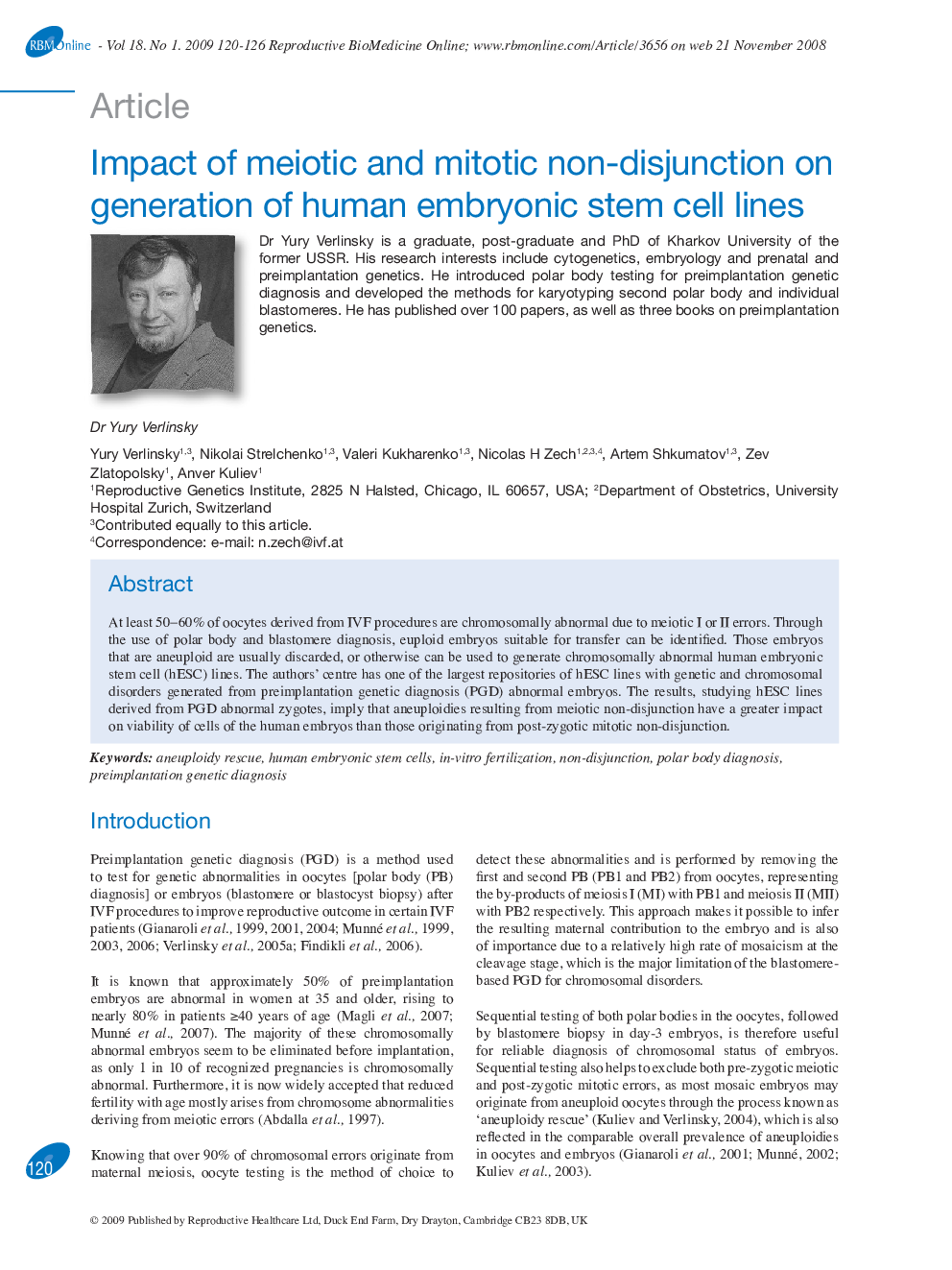| Article ID | Journal | Published Year | Pages | File Type |
|---|---|---|---|---|
| 3972287 | Reproductive BioMedicine Online | 2009 | 7 Pages |
At least 50–60% of oocytes derived from IVF procedures are chromosomally abnormal due to meiotic I or II errors. Through the use of polar body and blastomere diagnosis, euploid embryos suitable for transfer can be identified. Those embryos that are aneuploid are usually discarded, or otherwise can be used to generate chromosomally abnormal human embryonic stem cell (hESC) lines. The authors' centre has one of the largest repositories of hESC lines with genetic and chromosomal disorders generated from preimplantation genetic diagnosis (PGD) abnormal embryos. The results, studying hESC lines derived from PGD abnormal zygotes, imply that aneuploidies resulting from meiotic non-disjunction have a greater impact on viability of cells of the human embryos than those originating from post-zygotic mitotic non-disjunction.
